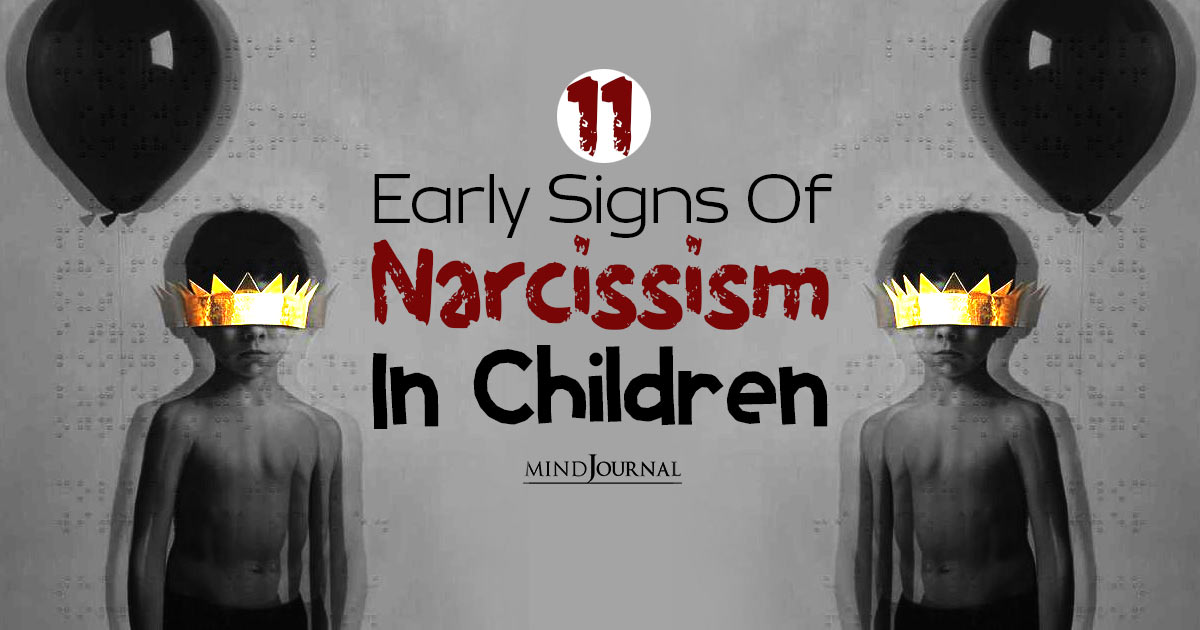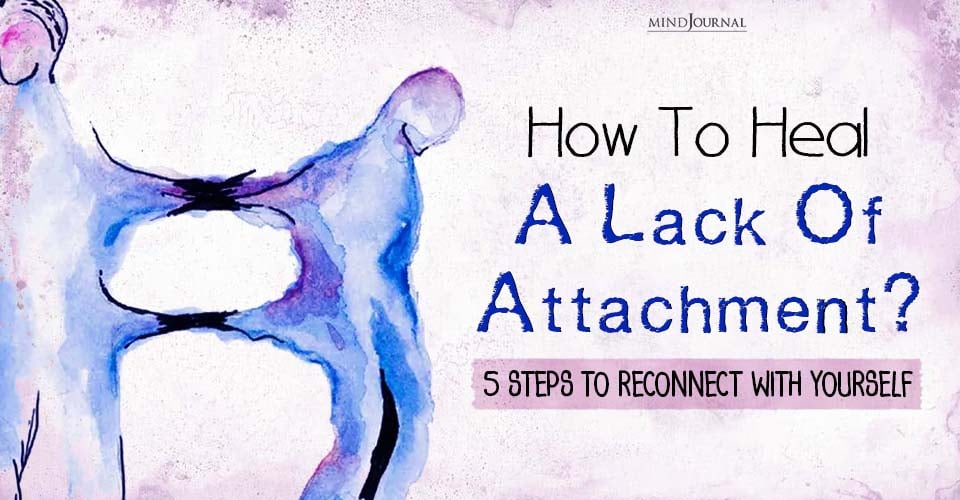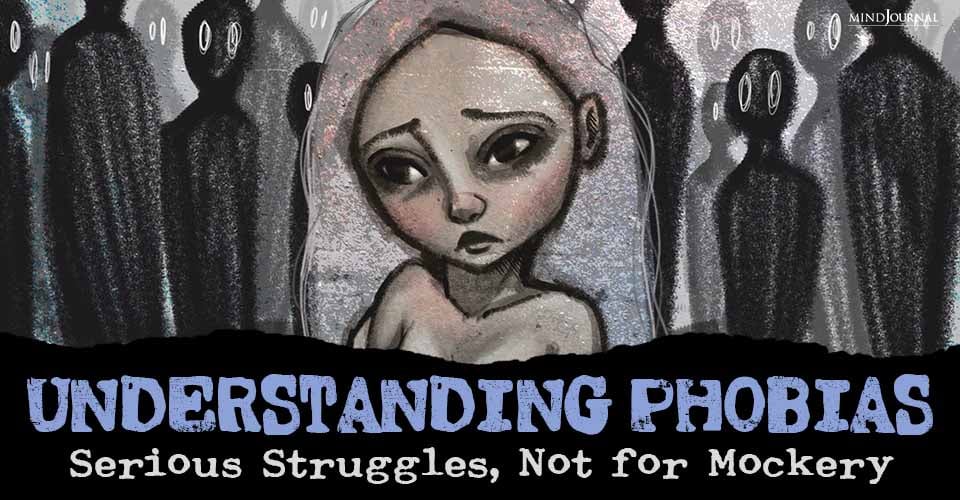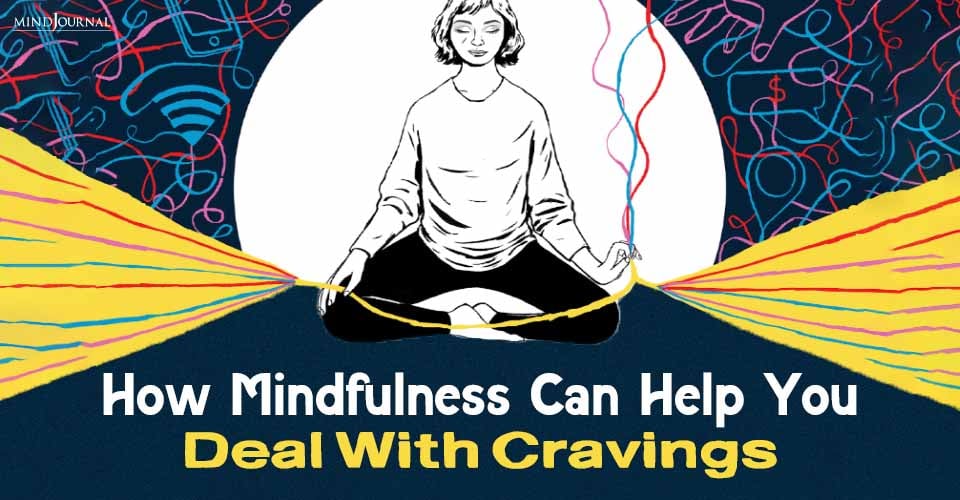Amidst the vibrant tapestry of childhood innocence, the early signs of narcissism in a child might seem like unexpected brushstrokes, but research reveals that these brushstrokes carry important clues about potential behaviors that warrant our attention.
It might seem inconceivable to associate traits like narcissism and psychopathy with young minds.
However, research reminds us that even amidst innocence, there can be hints of behaviors that raise eyebrows and warrant attention.
Although formal diagnoses like Narcissistic Personality Disorder and Antisocial Personality Disorder are reserved for adulthood, a constellation of terms, measures, and markers allows us to glimpse potential traits that might shape an individual’s future.
Read more here: 7 Common Myths About Narcissistic Personality Disorder
Tracing Early Signs Of Narcissism In A Child Along With Psychopathy
The innocence of childhood clashes starkly with the notions of narcissism and psychopathy. Yet, it’s crucial to acknowledge that some children display behaviors that echo these complex traits, leaving us to wonder about the trajectory they might follow.
Formal diagnoses might not apply to children, but the threads of potentially harmful behaviors can be discerned early on.

When one speaks of psychopathy and narcissism, images of innocence don’t readily spring to mind.
However, a closer look reveals that certain children exhibit troubling behaviors that signal deeper concerns.
While full diagnoses for a condition like Narcissistic Psychopath Personality Disorder is typically reserved for adulthood, researchers have identified a constellation of terms, measures, and early warning signs that may illuminate potential traits.
Read more here: How To Prevent Raising A Narcissist: 14 Strategies For Raising An Empathetic Child
What Is A Narcissistic Psychopath Personality?
A narcissistic psychopath embodies a dangerous combination of self-centeredness and callousness.
They lack empathy, manipulate others, and exhibit grandiosity, exploiting their charm for personal gain.
This personality fusion is a combination of psychopathy and narcissism. Here are the signs of psychopathy and narcissism for your reference.
Signs Of Psychopathy and Narcissism
1. Absence Of Guilt Or Remorse
Displaying a disconcerting emotional void where one should experience remorse for causing pain, distress, or harm.
This striking absence reflects a disturbing lack of empathy and ethical responsibility, making it challenging to relate to the feelings or suffering of others.
2. Callous Attitudes
Projecting an unsettling emotional detachment in interactions, showing little regard for others’ emotions, rights, or well-being.
This demeanor displays an insensitive and uncaring approach, often leading to disregard for the consequences of one’s actions on those around them.
3. Prioritizing Self-Interest
Demonstrating a consistent tendency to elevate personal desires, needs, and gains above the well-being of others.
This self-centered focus often leads to exploitative behaviors and a concerning lack of consideration for how their actions might impact those they interact with.
4. Falsehoods And Deception
Engaging in a web of deceit and manipulation to achieve personal objectives. Often accompanied by a facade of charm, this pattern of dishonesty obscures true intentions, creating a veneer that betrays the underlying motives and goals.
Read more here: How A Child Becomes Narcissistic: What Type of Parenting Leads Children To Grow Up With NPD?
5. Emotional Detachment
Portraying a stark disconnection from the emotions and experiences of others. This emotional detachment results in shallow, superficial relationships, as the individual struggles to grasp or empathize with the feelings of those around them.
6. Disingenuous Charm
Presenting an outwardly charismatic and friendly demeanor designed to manipulate and deceive. This charm becomes a potent tool, concealing ulterior motives while exploiting vulnerabilities in others, all in pursuit of personal gain.
7. Impulsivity Without Restraint
Succumbing to immediate impulses without regard for potential consequences. This unchecked impulsiveness leads to hasty decisions and actions that often lack consideration for the potential harm they could inflict on oneself and others.
8. Lack Of Empathy
Exemplifying an incapacity or unwillingness to comprehend and share the emotions of others. This deficiency in empathy creates a disconnect, hindering the ability to forge meaningful emotional connections with those around them.
9. Neglecting Responsibilities
Ignoring commitments, obligations, and duties, translates to a lack of dependability and accountability in both personal and professional relationships. This behavior undermines trust and contributes to unreliability which can be damaging to interactions.
10. Practicing Manipulation
Employing cunning tactics to influence others emotionally or psychologically, primarily to advance personal agendas. This manipulation exploits others’ vulnerabilities, often leading to a sense of control over situations and individuals.
11. Quick Temper
Displaying sudden outbursts of anger and irritability, often triggered by minor provocations. These bursts of aggression create a hostile and unpredictable atmosphere, making interactions with the individual tense and challenging.
Understanding Early Signs Of Narcissism In Children
In the journey of childhood, spotting the early signs of narcissism might catch us off guard. However, these signs hold important insights.
By cultivating qualities such as empathy, kindness, and self-awareness, we provide children with tools to shape their identities harmoniously.
In this way, they can navigate the complexities of life while remaining attuned to the needs and feelings of those they interact with.
Just as a skilled gardener tends to delicate blooms, we, too, tend to the growth of our children, nurturing their potential to bloom beautifully and harmoniously in the garden of life.
Are narcissistic traits in children a cause for concern?
While some self-centeredness is a natural part of development, consistent and extreme narcissistic behaviors might warrant attention for healthy social and emotional growth.
Can these early signs of narcissism predict adult narcissism or psychopathy?
While not definitive predictors, recognizing these signs provides an opportunity for intervention and guidance to foster positive traits.
What can parents do to address early signs of narcissism?
Encouraging empathy, communication, and self-awareness can help children develop a balanced sense of self and considerate relationships.










Leave a Reply